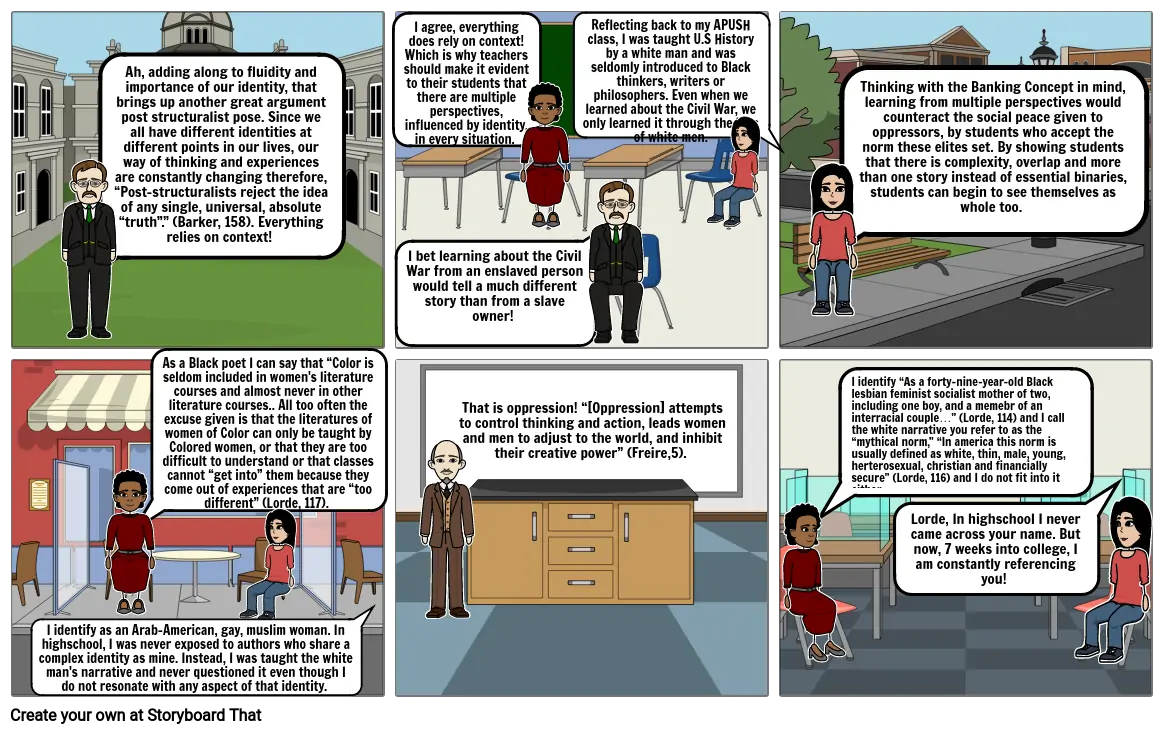Unknown Story

Siužetinės Linijos Tekstas
- Ah, adding along to fluidity and importance of our identity, that brings up another great argument post structuralist pose. Since we all have different identities at different points in our lives, our way of thinking and experiences are constantly changing therefore, “Post-structuralists reject the idea of any single, universal, absolute “truth”.” (Barker, 158). Everything relies on context!
- As a Black poet I can say that “Color is seldom included in women's literature courses and almost never in other literature courses.. All too often the excuse given is that the literatures of women of Color can only be taught by Colored women, or that they are too difficult to understand or that classes cannot “get into” them because they come out of experiences that are “too different” (Lorde, 117).
- I agree, everything does rely on context! Which is why teachers should make it evident to their students that there are multiple perspectives, influenced by identity, in every situation.
- I bet learning about the Civil War from an enslaved person would tell a much different story than from a slave owner!
- Reflecting back to my APUSH class, I was taught U.S History by a white man and was seldomly introduced to Black thinkers, writers or philosophers. Even when we learned about the Civil War, we only learned it through the lens of white men.
- Thinking with the Banking Concept in mind, learning from multiple perspectives would counteract the social peace given to oppressors, by students who accept the norm these elites set. By showing students that there is complexity, overlap and more than one story instead of essential binaries, students can begin to see themselves as whole too.
- I identify as an Arab-American, gay, muslim woman. In highschool, I was never exposed to authors who share a complex identity as mine. Instead, I was taught the white man's narrative and never questioned it even though I do not resonate with any aspect of that identity.
- That is oppression! “[Oppression] attempts to control thinking and action, leads women and men to adjust to the world, and inhibit their creative power” (Freire,5).
- I identify “As a forty-nine-year-old Black lesbian feminist socialist mother of two, including one boy, and a memebr of an interracial couple…” (Lorde, 114) and I call the white narrative you refer to as the “mythical norm,” “In america this norm is usually defined as white, thin, male, young, herterosexual, christian and financially secure” (Lorde, 116) and I do not fit into it either.
- Lorde, In highschool I never came across your name. But now, 7 weeks into college, I am constantly referencing you!
Sukurta daugiau nei 30 milijonų siužetinių lentelių

